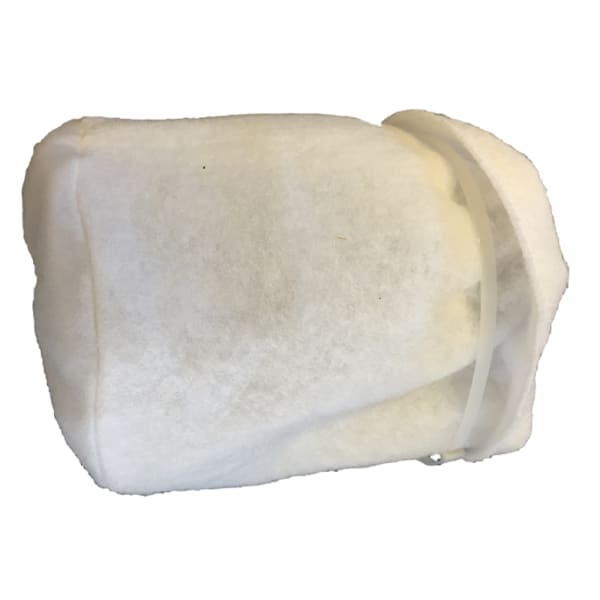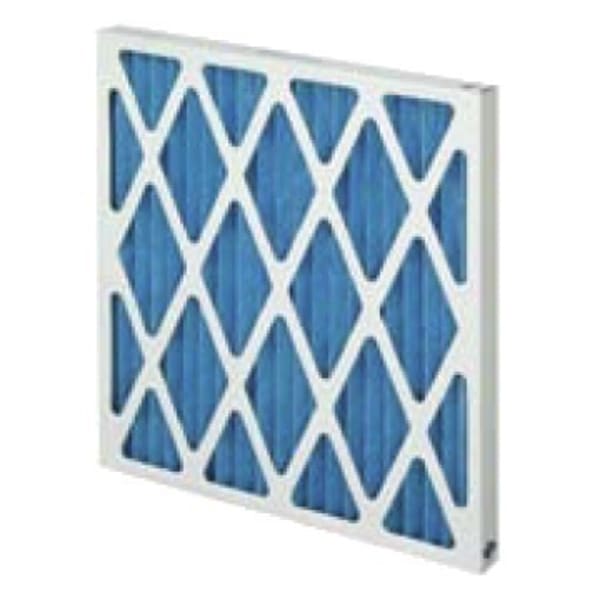Air Filters
Introduction to FILTERS
Indoor air pollutants are unwanted, sometimes harmful materials in the air. Indoor air pollution is among the top five environmental health risks. Usually the best way to address this risk is to control or eliminate the sources of pollutants, and to ventilate a home with clean outdoor air. The ventilation method may, however, be limited by weather conditions or undesirable levels of contaminants contained in outdoor air. If these measures are insufficient, an air cleaning device may be useful. Air cleaning devices are intended to remove pollutants from indoor air. Some air cleaning devices are designed to be installed in the ductwork of a home’s central heating, ventilating, and air-conditioning (HVAC) system to clean the air in the whole house.
How Air Filters Work
Air filters remove particles from the air stream as these particles come into contact with the surface of fibres in the filter media and adhere to the fibres. An air filter consists of a web of fine fibres. The web must be sufficiently dense to force any particle attempting to pass through it to follow a zigzag course, the particles, which hit the fibres on their passage through the filter medium, are caught and held by the fibres.
Rating of Air Filters
The effectiveness of a HVAC air filter is measured in MERV ratings (Minimum Efficiency Rating Value). Every HVAC air filter has a MERV rating, which measures how efficiently a filter captures pollutants that pass through your HVAC system tells you how well the filter captures and holds dirt and dust of a specified size range. MERV ratings range from 1 (least efficient) to 16 (extremely efficient) Air filters with lower MERV ratings need to be replaced more frequently.
|
CLASS |
MERV Rating |
EN779 Class |
ISO 16890 |
Controlled Contaminants |
|
Pre Filter |
MERV 2 |
G2 |
Coarse 40% |
Particle size bigger than 10.0µm EXAMPLES |
|
|
||||
|
|
||||
|
MERV 5 |
G3 |
Coarse 50% |
Particle size within 3.0µm-10.0µm EXAMPLES |
|
|
|
||||
|
MERV 6 |
G4 |
Coarse >90% |
||
|
|
||||
|
Final Filter |
MERV 9 |
M5 |
ePM10 ≥50% |
Particle Size within 1.0µm-3.0µm EXAMPLES |
|
|
||||
|
MERV 11 |
M6 |
ePM10 >60% |
||
|
|
||||
|
MERV 13 |
F7 |
ePM2.5 >65% |
Particle size within 0.3µm-1.0µm EXAMPLES |
|
|
MERV 14 |
F8 |
ePM1 70% |
||
|
MERV 16 |
F9 |
ePM1 >80% |
||
|
|
But Which is the Best Filter For You?
Common sense would suggest that you would choose an air filter with a higher MERV rating to ensure the best air quality. However, using a filter rating that is too high for your HVAC system may cause damage. Higher rated filters offer resistance to air flow that may place too much strain on the fan motor in your system, leading to HVAC system failure. Using a filter rating that is too low will prevent you from maximizing the level of clean air in your home.
Why you should change your air filter?
A dirty air filter is the #1 reason for HVAC system failure. A dirty filter restricts the air flow into your HVAC system. This restricted air flow places additional strain on the fan motor and could, over time, burn out the motor and cause your system to overheat and ultimately fail. Filter replacement is a small price to pay to extend to life of one of the biggest financial investments in your home.
A dirty air filter makes your fan motor work harder and consume more energy. One of the easiest and quickest ways to reduce your energy bill is to replace your air filter.
How often should you change your filters?
You should always double-check your owner’s manual for specific recommendations, but generally speaking it’s best to clean or change your filters once every 3 to 9 months. Implementing a schedule to replace the air filters takes the guess work out of when filters should be changed. Remember, regular cleaning/changing of your filter will ensure the best filtration, increase the life of your system, and give you peace of mind that you’re breathing easier.
$31.09
$31.09
$31.09
$31.09
$32.39
$49.13
$34.57
$32.10
$32.61
$49.13
$37.83
$37.83
$37.83
$52.17
$34.78
$37.83
$37.83
$32.61
$60.87
$39.13
$55.22
$36.96
$38.70
























